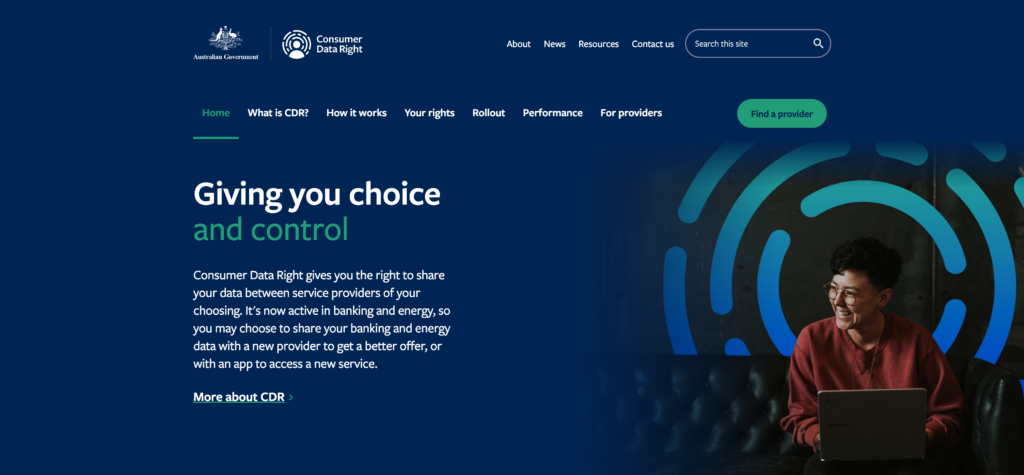Australia, with its mature eCommerce market, high consumer purchasing power, and advanced logistics system, has become an excellent destination for brands expanding into global markets. Popular brands such as DJI and Perfect Diary have successfully operated and sold through cross-border eCommerce in Australia.
In recent years, Australia's privacy laws have undergone significant changes, particularly influenced by the European Union's General Data Protection Regulation (GDPR), presenting new challenges and requirements for data compliance.
While brands conducting business through third-party marketplaces can easily abide by local regulations thanks to each platform’s policies, companies running self-operated branded eCommerce stores face significant compliance challenges when conducting cross-border operations and directly processing user data. Understanding and complying with these data regulations is the basis for successful market entry and avoiding unnecessary compensation or legal liability.
For more information on data regulations in other markets, you can refer to the previous article on Data Protection Laws in Southeast Asia: Overview by Country (2024)Each SEA country has particular regulations regarding data privacy. These are the key compliance aspects that companies entering Southeast Asian markets must know.data regulations in Southeast Asian countries.

Legal Background: The Australian Privacy Act Amendment Significantly Raises the Penalty Threshold
The Australian Privacy Act, formally known as the Privacy Act 1988 (Cth), is an early-enacted law that has been in effect since 1988. This legislation is designed to protect individual privacy and sets out rules and principles for handling personal information.
In 2018, the European Union implemented the milestone General Data Protection Regulation (GDPR), a comprehensive privacy and data protection regulation that set a new global standard for data protection. In February 2023, the Australian Attorney-General's Department released the Privacy Act Review Report, proposing 116 recommendations aimed at aligning Australia's privacy laws more closely with international privacy protection standards like the GDPR.
In November 2022, the Australian government passed the Privacy Legislation Amendment (Enforcement and Other Measures), an important update to the existing Privacy Act. This amendment has raised the penalty caps for violations. Under the new legislation, businesses that seriously or repeatedly violate privacy policies may face fines of up to AUD 50 million or 30% of their annual revenue. This change has almost increased the potential penalty risk by 23 times, setting higher compliance requirements for businesses.
Additionally, the budget increase for the Office of the Australian Information Commissioner (OAIC) indicates that there will be more autonomous investigations and enforcement activities related to data privacy in the coming period.
Key Regulations that Brand eCommerce Should Pay Attention To:
Privacy Act and Australian Privacy Principles (APPs)
The Act applies to all organizations with an annual turnover exceeding 3 million AUD (approximately 1.9 million USD), or any organization that handles health information. For organizations with an annual turnover below 3 million AUD, the Act also applies if they engage in the commercial handling of information.
CDR Privacy Protection Guidelines
The Consumer Data Right (CDR) Privacy Safeguarding Guidelines, issued by the Office of the Australian Information Commissioner (OAIC), set forth a series of requirements for businesses. For instance, when collecting consumer data, businesses must clearly inform the purpose of data collection.
State Privacy Laws
In addition to federal legislation, each state and territory in Australia has its own privacy laws, especially for private enterprises involved in health records and state government contracts.

Key Points of the Regulations that Brand eCommerce Should Pay Attention to
Compliance with Australian Privacy Principles (APPs)
Australia's privacy law is based on a set of privacy principles known as the Australian Privacy Principles (APPs). eCommerce businesses must adhere to these principles when collecting, using, storing, and sharing user data. In particular, businesses need to:
- Ensure that the data collected is necessary and directly related to the business function (APP 3.2).
- Clearly notify users of the purposes for which data is used and the potential recipients of the data at the time of collection (APP 5.1).
- Collect sensitive information, such as health data, only with the consent of the individual (APP 3.3).
Data Breach Prevention and Response
First, an "Eligible Data Breach" (EDB) under Australia's privacy law refers to unauthorized access, unauthorized disclosure, or loss of personal information held by an entity (an organization subject to the Privacy Act).
According to guidelines issued by the OAIC (Office of the Australian Information Commissioner), businesses need to develop comprehensive data breach prevention strategies.
Additionally, businesses should establish a comprehensive data breach response plan to ensure that in the event of a data breach, affected systems can be quickly isolated, the scope and potential impact of the breach can be assessed, and remedial measures can be taken promptly to ensure that OAIC and all affected individuals are notified swiftly.
Overseas Transfer of Personal Information
Data cross-border transmission is part of the daily operations of cross-border eCommerce, especially when businesses use overseas servers or share customer information with international partners. The guidelines issued by the OAIC emphasize that when transferring personal information outside of Australia, businesses must ensure that their practices comply with Australian privacy law requirements.
First, eCommerce businesses must assess whether the data protection laws and practices of the recipient country meet Australian standards before transferring data overseas.
Businesses should also conduct a detailed risk assessment and take appropriate risk mitigation measures before cross-border data transmission. Even if data is stored or processed overseas, eCommerce businesses must ensure that data subjects can exercise their rights of access and correction.

Data Minimization and Retention
According to Australia's privacy laws, businesses must adhere to the principle of data minimization, collecting only the personal data necessary to fulfill specific purposes. For instance, eCommerce companies conducting market research can obtain valuable business insights through anonymized data analysis without the need to collect and store specific personal information of users.
Furthermore, companies must establish data retention policies to ensure that personal information is promptly deleted or anonymized when no longer needed.
Privacy Impact Assessment (PIA)
For eCommerce businesses dealing with large volumes or sensitive personal data, conducting a Privacy Impact Assessment (PIA) is an important step to ensure compliance. Through a PIA, companies can identify and address potential privacy issues in advance, thereby reducing compliance risks.
Privacy Impact Assessment is not a one-time task; businesses should regularly review and update the PIA to address privacy risks brought about by new technologies and business changes.
Ensuring Legal Compliance with TMO
For enterprises expanding to the Australian market through cross-border eCommerce, the significant increase in fines for violating data regulations makes data privacy compliance no longer a choice. Businesses need to invest more resources to ensure that data processing complies with the requirements of the Privacy Act and CDR.
TMO has many years of experience in implementing brands’ overseas eCommerce projects and works with legal professionals with expertise in eCommerce and specific operating jurisdictions to ensure compliance and minimize the legal risks of the enterprise.
If your company is considering overseas operations, you can learn about our Global eCommerce Solutions for international eCommerce brands going global.
If you want to know more detailed regulations of various countries and their implementation in cross-border eCommerce, our eCommerce legal compliance services cover the interpretation of laws and regulations in your target market, including Consumer Protection, Data Compliance, Privacy, and eCommerce regulations to assist you in formulating appropriate compliance strategies. You can also directly contact our eCommerce specialists!












